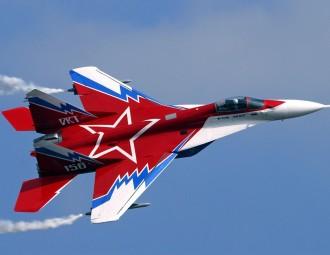Opinion: Concerns about deployment of Russian Iskander ballistic missile in Belarus are futile

Joint statements by Belarus’, Russia’s officials about NATO’s eastward strategy and deployment of European missile defence system in the region don’t yet imply there will be joint steps in response.
So far, the talks about the potential expansion of the Russian military presence in Belarus are only ungrounded speculations. Russia is unlikely to step up the pressure on Belarus in order to engage her in a confrontation with the West.
On May 15th - 16th, Russian Foreign Minister Sergei Lavrov was on a working visit to Belarus. Among other things, the minister discussed the issue of NATO expanding its military infrastructure, including the creation of the European missile defence facilities. This was a routine visit (coordination meetings between Russian and Belarusian Foreign Ministries occur twice a year on average), and parties were quite restrained in their public comments. However, the issue of deployment of Russian military units equipped with the Iskander ballistic missile in Belarus has been raised once again.
Numerous publications in the media about the prospects for deploying the Russian Iskander in Bealrus have no factual grounds and rather create the ‘information noise’. Currently, the Iskander theme for Belarus seems to be exhausted.
Conventionally, Russian military specialists respond to European missile defence threats with the the threats to expand the Iskander ballistic missiles to the west, meaning the Kaliningrad region and Belarus. It is not surprising that a source in the Russian Defence Ministry in an interview with Moscow based Kommersant newspaper has referred to this as a possible response by Belarus and Russia to the deployment of missile defence elements in Romania and Poland. That said, there is nothing new in this information, Russia has simply confirmed her usual approach.
Even more surprising that this topic has been taken up and unreasonably inflated in Belarus, in particular, by Belaruskie Novosti and Radio Svoboda.
Belarusian analysts have completely ignored both, the issue’s background and the specifics of the moment. Incidentally, the Iskander ballistic missile was regarded as a replacement for Soviet Tochka-U in the Belarusian Army. However, the replacement has never materialised. For Belarus, these missiles were too expensive, and Russia sought to meet the domestic demand of the Russian Army before starting to export them. In addition, Moscow is wary of technology leak when exporting the Iskander. And, given the Minsk’s position on the war in Ukraine, these concerns are rather reasonable. Overall, the question of the Iskander ballistic missile supply for the needs of the Belarusian army is futile (either the sale, or transfer within the framework of military-technical assistance). In addition, Belarus has started developing the national missile programme, which cancels out the need for this missile.
Nevertheless, Russia aspires to enhance her military presence in Belarus. Inter alia, by deploying military unites equipped with the Iskander ballistic missile. However, this would be unacceptable for Minsk due to the same reasons why the Belarusian authorities have refused to deploy a Russian airbase:
- Minsk does not want to become involved in the confrontation between Russia and the West
- Foreign military units could be used as a tool to interfere in the internal political processes
- Russian military presence would enhance the dependence of Minsk from Moscow in foreign policy.
Joint statements by Belarusian and Russian officials about the NATO’s eastward strategy and the deployment of elements of European missile defence system in the region, do not yet imply there would be joint steps in response. This is due to the difference in goals for Minsk and Moscow. Russia is preparing for a long confrontation with the West. Minsk seeks to prevent the escalation in the region.
Overall, the talks about the potential expansion of the Russian military presence in Belarus are only ungrounded speculations. The Kremlin has only very limited opportunities to put pressure on Minsk in this regard. Belarus is a party to all the Russia-led integration processes in the post-Soviet space, she avoids making the existing problems in bilateral relations public in order not to give Moscow formal grounds for a conflict. Moreover, Russia, due to the limited resources and the threat of discrediting the integration organizations such as the CSTO and the EEU, cannot afford rigid picks with Minsk. That said, Russia is unlikely to put effective pressure on Belarus in order to engage her in a confrontation with the West (including by deploying the Russian military contingent in Belarus).
-
03.01
-
07.10
-
22.09
-
17.08
-
12.08
-
30.09








































